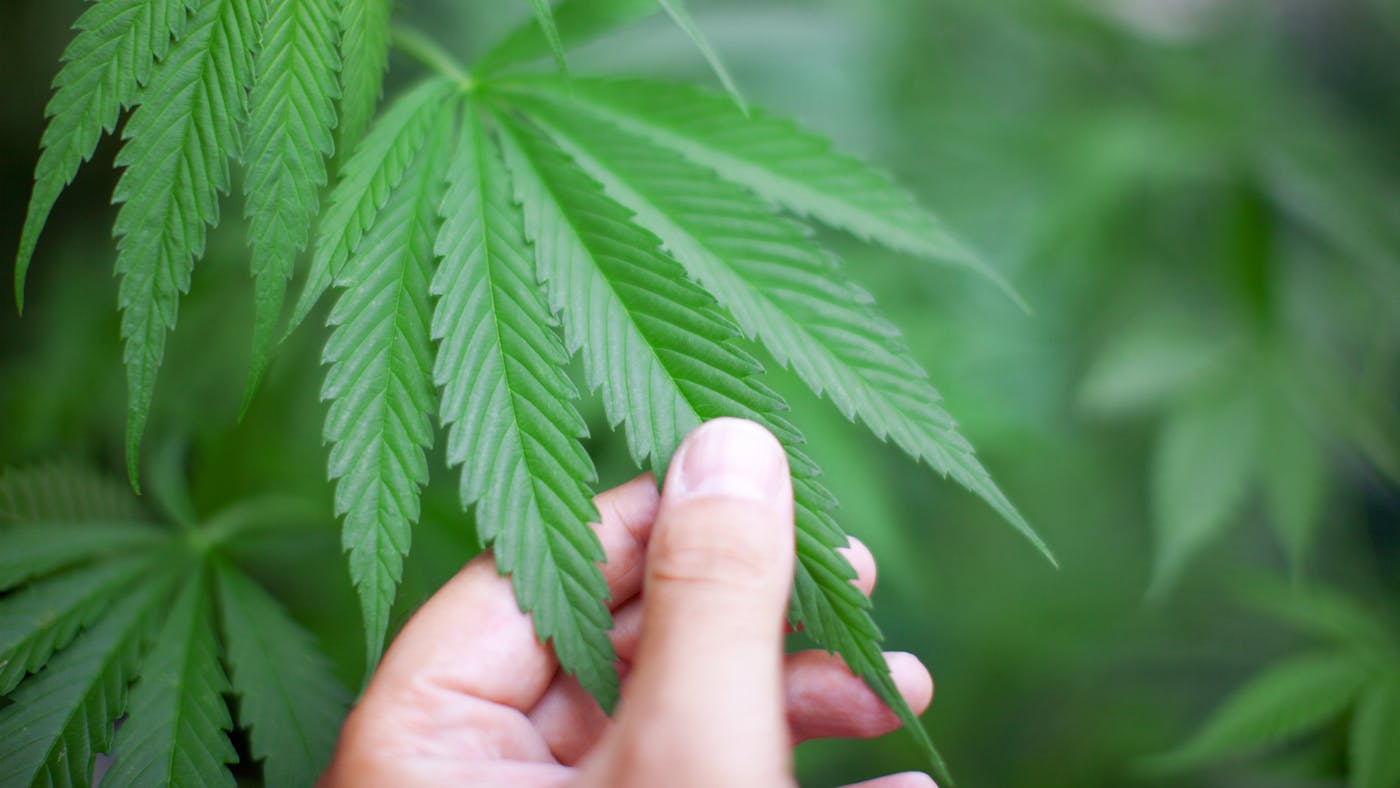4-25-18 Marijuana to the Glory of God?
Marijuana to the Glory of God?

I used to smoke marijuana every day.
Sixteen years ago, when I was in my late teens, cannabis was a big part of my life. Today it continues to confront me as a pastor in a city where recreational marijuana is legally celebrated. Our church office is directly across the street from a dispensary where I can legally buy a pre-rolled joint for seven dollars.
How are we to think about recreational cannabis use in the church? A growing number of Christians today believe that it is biblically permissible to use cannabis recreationally. Are they right?
Cannabis Versus Alcohol
Quick, pat answers to the question of recreational cannabis use are often unhelpful. Responses without nuance will not best serve the church in the long run. To say that alcohol is permissible, and cannabis is not, because “Christians drink beer and wine for the taste, but people only smoke pot to get stoned,” just won’t do. Such a simplification distorts the truth.
For one, Christians don’t drink beer and wine only for the taste. Even moderate drinking, which is biblically permissible, has lubricating psychoactive effects. From a biblical perspective, this lubricating effect can be acceptable. While drunkenness is clearly prohibited (Ephesians 5:18; Romans 13:13; Galatians 5:19–21; 1 Peter 4:3), God has given “wine to gladden the heart of man” (Psalm 104:14–15).
“Is it okay to light up around the campfire just like it may be to enjoy wine at a wedding?”
However, evangelical churches sometimes have prohibited the use of alcohol among members because the Bible forbids drunkenness. This is a mistake. The Bible warns us against such extrabiblical prohibitions (1 Timothy 4:3; Colossians 2:16–23). Scripture permits the moderate use of alcohol, when it can be enjoyed in faith, even though it has psychoactive effects.
Does God, then, also permit the recreational use of cannabis? Should we treat cannabis like alcohol in the church? Is it okay to light up around the campfire just like it may be to enjoy wine at a wedding?
Similarities and Dissimilarities
Let’s examine this commonly used comparison between alcohol and cannabis. The following are ways that cannabis and alcohol are similar and dissimilar.
Ways that cannabis is like alcohol:
- Cannabis, like alcohol, is an organic substance.
- Cannabis, like alcohol, has the potential to intoxicate and distort reality.
- Cannabis, like alcohol, has different effects on someone who uses it regularly than someone who uses it occasionally. (In other words, tolerances can be built up with regular marijuana use similar to the way tolerances can be built up with regular alcohol use.)
- Cannabis, like alcohol, can be habit-forming (see 1 Timothy 3:8).
Ways that cannabis is unlike alcohol:
- Unlike alcohol, you can’t blackout or die from an overdose of cannabis.
- Unlike alcohol, there are many different strains of cannabis. The same amount of cannabis smoked or ingested from two different cannabis plants can have different effects on an individual — even if both plants have the same exact amount of THC (the primary psychoactive chemical in cannabis).
- Unlike alcohol, marijuana has many different effects on an individual due to its complex chemical makeup. There are at least 113 different chemical compounds (cannabinoids) inside the cannabis plant that combine to cause a variety of effects on an individual when smoked or ingested.
- Unlike alcohol, cannabis has not been a staple in cultures all around the world for use in celebrations and ceremonies (like John 2:9).
- Unlike alcohol, regular cannabis use is strongly correlated with mental health disorders such as schizoaffective disorder. While heavy drinking (alcohol abuse) has also been linked to mental health disorders, moderate drinking has not.
- Unlike alcohol, cannabis has been a cultural symbol of rebellion for a large part of the last century.
- Unlike alcohol, cannabis was not used by Jesus in his Last Supper, which is to be regularly commemorated by the church (Mark 14:23–25).
- And perhaps most importantly, unlike alcohol, cannabis is not directly addressed in the Bible.
It is unhelpful to make direct correlations between cannabis and alcohol, as if all the Bible’s teaching on alcohol applies to cannabis. Not only are cannabis and alcohol vastly different chemical compounds, with vastly different effects, but the Bible gives us clear and direct permission for the moderate use of alcohol while never directly referencing other psychoactive compounds such as marijuana.
The Big Picture
Even though cannabis is never directly mentioned in Scripture, we do have God-revealed principles to guide and direct our thinking about its recreational use. We often get help on specific questions when we keep our eyes on the big picture. What is the endgame for the Christian life? What should we be aiming at in all things?
“The Christian use of any substance should align with the goal of looking to see things clearer.”
As Christians, our goal is knowing and experiencing the full and undistorted reality of the glory of God in our resurrected physical bodies (1 Corinthians 15:12–49; Philippians 3:20–21; 1 Corinthians 13:12). This is our trajectory as Christians. This is our aim.
God is glorious beyond measure, and Christians seek to experience the reality of his glory, for the sake of his glory. Sin has distorted our vision and corrupted our world. Ever since sin first entered the world, all of us have been born spiritually dead, unable to discern the true glory of God (Ephesians 2:1–5; Colossians 2:13; 2 Corinthians 4:4). When we experience the redemptive work of Christ through the Holy Spirit, we are awakened to the reality and beauty of God (2 Corinthians 4:6). But until we see him face to face, we still see his glory as through a glass dimly (1 Corinthians 13:12). As redeemed believers, we are on a journey to knowing him without obstruction. Therefore, we do not want to distort reality; rather, we aim to know him as he really is. We want to see things as they really are.
The Christian use of any kind of psychoactive substance should always align with this gospel goal of looking to see things clearer. We do not want our vision of reality distorted.
Christian Cup of Coffee?
Consider this principle in terms of a psychoactive substance most American adults use every day: caffeine. Why do people drink coffee in the morning? To help them to see things as they really are, rather than through the fog of grogginess. The right and proper use of this God-given substance helps us see things as they really are.
But how does this principle apply to alcohol? At times moderate lubrication in Godward celebrations can be in keeping with the reality. People don’t drink wine at funerals, which are a reminder of the curse and consequences of sin. If someone drank wine at a funeral, I would wonder whether they have an unhealthy relationship with alcohol.
But people do drink wine at weddings, in which we celebrate the profound parable being played out before our eyes: the great Bridegroom is coming for his bride, the church (Revelation 19:7)! And wine (explicitly) will have a God-given role at the final consummating celebration (Mark 14:23–25). In this way, the proper and moderate use of alcohol can be a clarifier, not a distorter. It points us to the joy, fellowship, and celebration of the great coming feast.
What About Weed?
Is there a proper and moderate use of marijuana that can actually serve to clarify and point to biblical realities like alcohol may in certain circumstances? Or does the recreational use of marijuana always distort?
“Regular marijuana dulls individuals into a long-term, slow, and subtle numbness.”
I believe, both from research and experience, that recreational cannabis distorts reality and numbs people to the ability to experience life as it truly is. Even a relatively small amount of THC puts the infrequent user into a fog. A larger amount can potentially cause paranoia.
What about more regular, high-functioning users who have built up a tolerance and experience a less intense high when they smoke or ingest cannabis? While cannabis won’t induce hallucinations or the same intense high for frequent users, we have other troubling factors to consider with persistent use.
There is a reason that marijuana has long been associated with the couch, a bag of chips, and a television remote. Put another way, marijuana has never been associated with engaged parenting. Regular marijuana use causes disengagement, dulling individuals into a long-term, slow, and subtle numbness. If you ask almost anyone who has formerly used cannabis on a regular basis, he will speak about this phenomenon. To confirm this testimony, studies have shown a high correlation between regular cannabis use and the clinical diagnosis of Amotivational Syndrome.
It doesn’t surprise me when a regular marijuana user tries to refute the reality of cannabis’s reality-numbing effect. When you are in the numbing cloud of regular cannabis use, it is hard to realize that you are in such a cloud — even when it is obvious to close friends and family. Cannabis may distort reality in a more subtle way for the regular user than for the occasional user, but the subtlety of it makes the negative effects all the more insidious and deep.
Counsel and Hope
Though the Bible does not forbid the use of every substance that affects the mind, the recreational use of cannabis seems to violate the Christian value of sobriety (1 Thessalonians 5:6–8; Titus 2:2, 6; 1 Peter 4:7). As our culture celebrates the casual use of cannabis today, and does so increasingly in the coming days, we should be vigilant not to be deceived as a church. We should not idly stand by as we watch brothers and sisters who profess faith in Christ enter into a mind-numbing, reality-distorting cloud of cannabis. We should encourage one another to peer through the dim glass and discern the glory of God with all our might as the Day draws near (Hebrews 10:25).
“We should encourage one another to discern the glory of God with all our might.”
However, it is worth saying that we should also be careful not to make the same mistakes that churches made by previous generations with regard to alcohol, adding extra prohibitions to God’s revealed word. Because of the many variables involved with marijuana use (for example, its medicinal use), I believe we should be very slow to make a firm prohibition policy for members of the church, such that we would automatically proceed with church discipline upon unrepentant use. However, it should be clear that unrepentant marijuana use could easily lead to church discipline.
We should be quick to engage with individual members who use marijuana, asking them questions and seeking to understand, being ready to exhort and rebuke them if it becomes apparent that they are violating the biblical standards of sobriety and integrity.
The details and nuances we’ll encounter will be complex, but Jesus’s church, holding fast to his word, led by a team of wise pastors, will be up for the challenge. God will have new mercies for us as we walk together by faith in the age of legal marijuana.

Comments